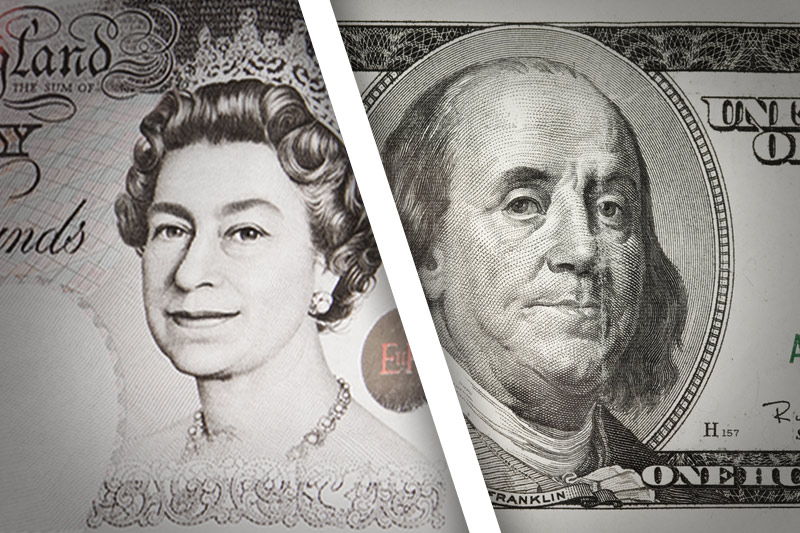Investing.com -- GBP/USD fell sharply on Thursday, plunging to one-week lows, after the Bank of England approved its first interest rate cut in seven years and approved a bevy of easing measures in order to help prop up the economy in the wake of June's historic Brexit decision.
The currency pair traded in a broad range between 1.3102 and 1.3345, before closing the U.S. afternoon session at 1.3106, down 1.67% on the day. Despite rebounding slightly from 30-year lows in the immediate aftermath of the Brexit referendum, the Pound is still down by nearly 12% against the Dollar since voters decided to leave the European Union on June 24. Hours before the Leave campaign prevailed in the controversial vote, the Pound surged above 1.50 versus the Dollar – peaking at six-month highs.
GBP/USD likely gained support at 1.27996 the low from July 6 and was met with resistance at 1.3481, the high from July 15.
On Thursday morning, the Bank of England as expected lowered its benchmark interest rate by 25 basis points to a record-low of 0.25%, representing its first rate cut since the Great Recession. Notably, the BOE increased its asset purchasing by £60 billion, outlined a plan to begin buying £10 billion of corporate bonds per month and announced an initiative for providing as much as £100 billion to banks under a comprehensive term funding scheme.
"We have launched a timely, coherent and comprehensive package," BOE governor Mark Carney said.
At the same time, the Bank of England's Monetary Policy Committee (MPC) increased its near-term inflation outlook on Thursday, due primarily to the recent depreciation of the Pound Sterling. By year's end, the MPC expects inflation to reach 0.8%, up from previous estimates of 0.4%. The MPC also anticipates that inflation will increase to 1.9% by the end of 2017 and overshoot its 2% target in December, 2018. Carney emphasized that additional rate cuts and further easing measures could be forthcoming if the figures in Thursday's inflation forecast wind up being accurate.
While analysts from Fitch Ratings described the easing measures as a "proactive policy response," to the EU referendum, they cautioned that the action may still be not sufficient enough to offset the shock to domestic growth brought about by the Brexit decision. Over the next two years, Fitch anticipates capital spending among British firms to decline by 15% in comparison with its May outlook.
Yields on the U.K. 10-Year tumbled 16 basis points on Thursday to an all-time record low of 0.64%. Since the final votes in the referendum were tallied in late-June, yields on U.K. gilts have plunged more than 75 basis points from their Pre-Brexit level of 1.40%.
Elsewhere, investors looked ahead to Friday's key U.S. monthly jobs report for the month of July for further indications on the strength of the labor market. Analysts expect to see an increase of 185,000 in nonfarm payrolls, one month after the economy added a robust 287,000 jobs in June. Steady increases in wages and continued declines in unemployment over the next two months could compel the Federal Reserve to raise short-term rates at its next meeting in September.
The U.S. Dollar Index, which measures the strength of the greenback versus a basket of six other major currencies, gained more than 0.25% to an intraday high 95.87. The index is still sharply below four-month highs of 97.62 from early last week.
